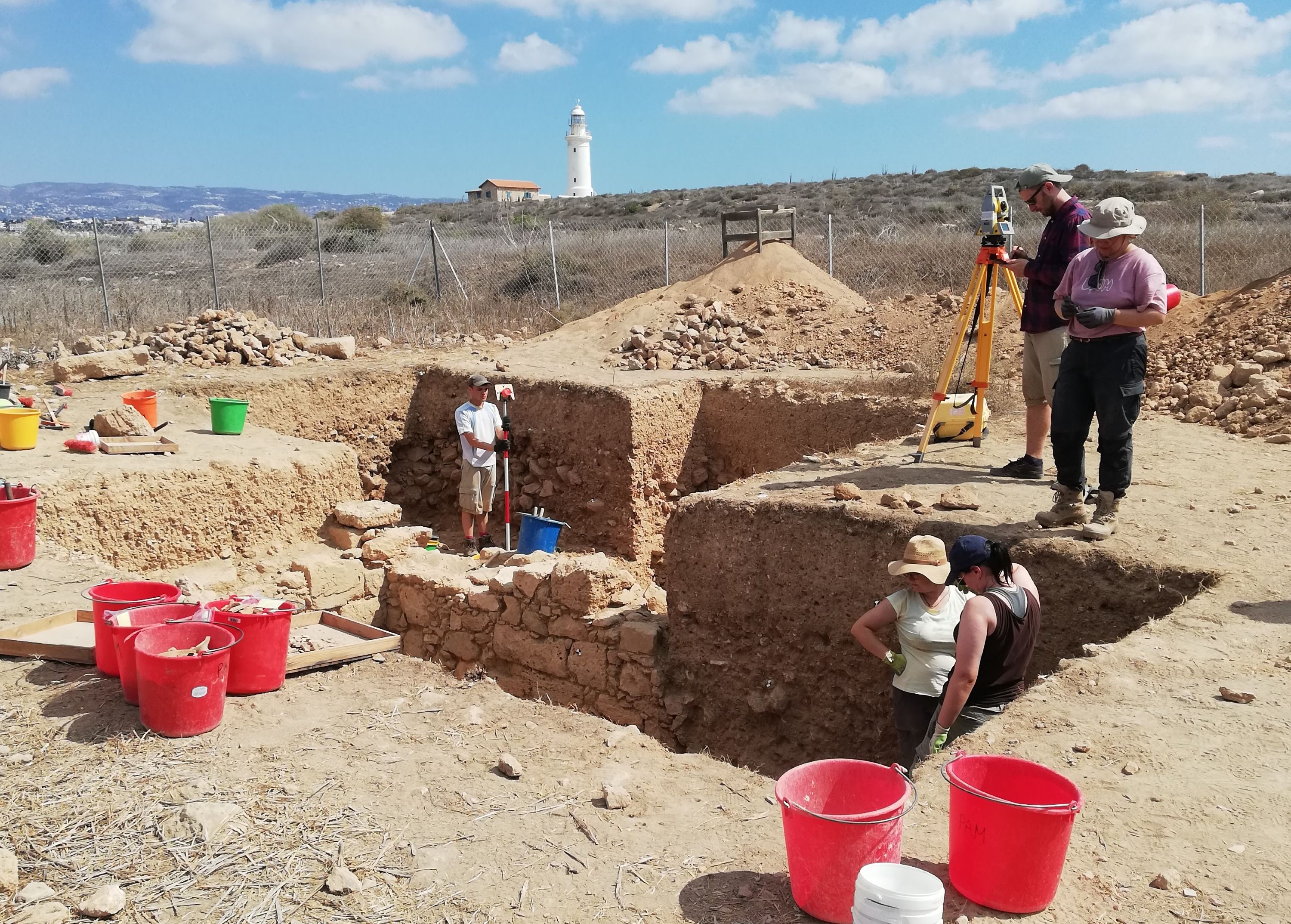A new archaeological discovery in the region of Akamas is changing the early prehistory of Cyprus, the Department of Antiquities announced on Friday.
“A very special find, discovered in situ, likely evinces the presence of hunting activities in the region. Several charcoal samples were excavated on site and are being prepared to be sent abroad for radiocarbon dating that is expected to determine the age of the site,” the department said.
Overall, a rich artefact assemblage was collected during the field season encompassing chipped stone, stone containers, beads, shells and bone artefacts.
All the excavated material has been georeferenced and the documented material categories are studied by specialists in order to determine their characteristics.
“The discovery of this new archaeological site, Drouseia Skloinikia, in such a remote and secluded part of the island, calls into question the prevailing perception that the Akamas peninsula was a culturally marginal area during the early prehistory of Cyprus,” the department said.
It added that, “upon completion, the first fieldwork season of the University of Cyprus in Akamas in 2024, adds new data to the study of Cypriot prehistory and, crucially, creates new questions that future research in the region will be called upon to answer.”
Moreover, it said that the location of the site in a region that is currently undergoing major development works is crucial in informing stakeholders on the ways the works can be conducted sustainably and with respect to the natural and cultural heritage of the region.
The archaeological excavation at the newly identified site of Drouseia-Skloinikia in the northwest sector of the Akamas peninsula was conducted under the direction of special scientist of the Archaeological Research Unit of the University of Cyprus Dr Theodora Moutsiou, in collaboration with archaeologist from the German Archaeological Institute Dr Christian Reepmeyer.
The campaign aimed at exposing a larger area of the archaeological locality to gain a better understanding of the timing and nature of the site.
The field research is part of the Modelling Demography and Adaptation at the Initial Peopling of the Eastern Mediterranean Islandscape (MIGRATE, EXCELLENCE/0421/0050) research programme, co-financed by the European Regional Development Fund and the Republic of Cyprus through the Research and Innovation Foundation.
The excavation also receives funding from the AG Leventis Foundation Overseas (Project TOPOS – Exploring the role of coasts in the early prehistory of Cyprus: Integrating archaeological excavations and geospatial technologies at the remote Akamas promontory).
In April 2022, the research team, led by Moutsiou and Reepmeyer, conducted a pedestrian survey in the coastal zone of the Akamas peninsula using grid/transects for the systematic collection of surface artefacts, followed by the excavation of a 1x1m test trench to determine the nature and potential of the documented surface lithic scatters to preserve stratified deposits.
The results of this preliminary work denoted the area as of high interest for the preservation of pre-Neolithic remains warranting further investigations.
The 2024 campaign was designed to fulfil the need for a detailed and systematic investigation of the newly identified site, now named Drouseia Skloinikia.
The work was initiated with the geophysical survey of the site, which covered a total area of 1,720 square metres and aimed at mapping the subsurface characteristics of the site to inform decisions on where to position the excavation trenches.
The geophysical survey was undertaken by the Digital Humanities GeoInformatics Lab of the Department of History and Archaeology, University of Cyprus, under the supervision of professor Apostolos Sarris.
Subsequently, five trenches were drawn and excavated to a maximum depth of 60cm by the end of the season.
The work recorded hundreds of stone artefacts with typo-technological characteristics that provisionally position them at the Terminal Pleistocene – Early Holocene (12-8 ka).






Click here to change your cookie preferences